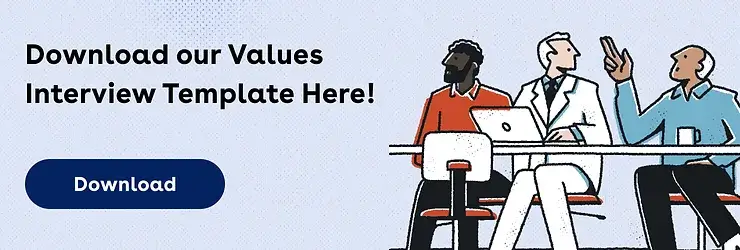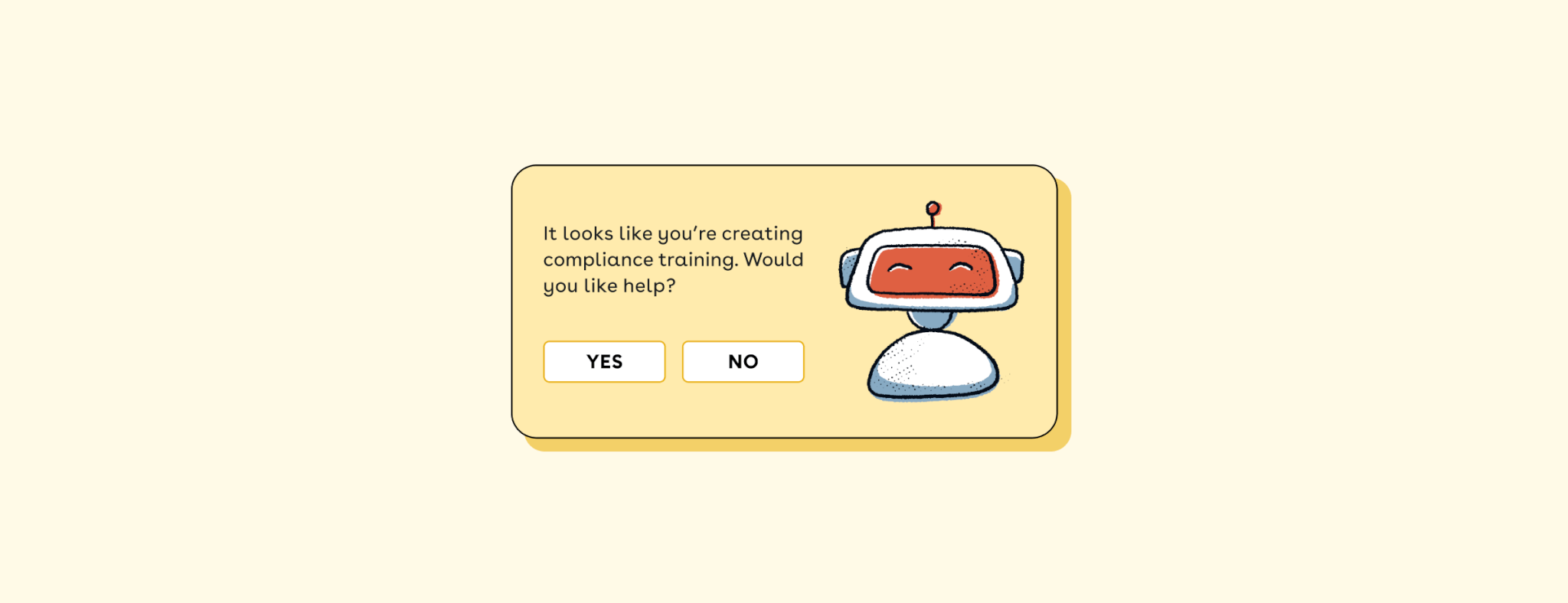It’s no secret that company culture plays a big role in the hiring process: people want to be aligned with the company they work for. If you’ve interviewed in the past ten years, there’s a strong likelihood you’ve heard of or participated in what’s known as a “culture-fit,” “culture-add,” or “values” interview.*
*The term “culture-fit interview” has become an outdated concept, as it can suggest bias and groupthink in a hiring team. We and others have shifted to thinking about “culture add” instead, to celebrate the fresh perspective and healthy challenge we want new people to bring to the team.
But the problem with any interview meant to address culture is that it can accidentally (or by design) build a “mirror-tocracy.” At their best, culture interviews are really values-alignment interviews. They are structured and precise. At their worst, culture interviews are unstructured, leaving their interviewers asking, essentially, “do I like / vibe with this employee,” which is very bad for all sorts of reasons, including diversity concerns. It even has a name, which is affinity bias.
But culture interviews, when done intentionally, can help both your company and the candidate better understand if they are going to thrive in the foundational, values-driven culture of your company, as it exists today.
What's all the fuss about culture interviews?
- They communicate that you prioritize a healthy company culture – Companies that care about their workplace culture will always make this a part of their regular interview process
- They’re a great way to see how a candidate might thrive – Both within your company culture and the work environment of your office
- Culture has a real impact on our work – While a candidate may feel perfect for the job itself, if they don’t mesh well with the culture at their new job, they’re likely to feel less satisfied, deliver poorer quality work, and even contribute to a more toxic work environment.
How to create the perfect culture interview
Your number one priority should be your company values. What are the core ideas that form the foundation of your workplace and the people that work there?
At Ethena, it’s a combination of things–playing to win, doing our training proud, embracing feedback, and infusing humor and humanity wherever we can. While a typical culture-fit interview can be useful for diving deeper into a candidate’s job history, their pre-interview research skills, and how they might handle a curveball question or two (that is, if you consider “how do you feel about humor at work?” a curveball), values are what you’re looking for. Values are the yardstick we use to measure each candidate by, and we should start with values when building our own culture, or, as we like to call it, Values Interview.

6 tips for building your own values-based interview
1. Build your questions from your values
What are the core attributes that keep your org running (and growing) in the right direction? The values interview is the ideal time to check that an incoming candidate feels comfortable with joining your team.
2. Give context for the interview
Not everyone has been through a Values interview, and no two “culture fit” interviews are created alike. Make sure the candidate knows at the top why this interview exists, and more important, what it isn’t designed for. what you’d like to learn about the candidate, and what you’re hoping they’ll take away from the process.
3. Context for every question
The questions in Values interviews often target soft skills and interpersonal communication rather than explicit job experience, and because of this, candidates may feel caught off-guard. Make sure you’re letting the candidate know why you’re asking each question, and be willing to meet them halfway if they’re unsure of how to begin an answer.
4. It’s okay to be unsure
A Values interview should fit within a larger interview process, so if you’re unsure about making a decision between “hire” and “turn down,” make sure to note so and follow up with the rest of the hiring team.
5. Regular rules of interviewing apply
Be communicative, manage expectations, and keep the conversation to job-related topics. The best Values interviews are insightful conversations, but it’s important to keep your inclusive hiring team hat on at all times. Bonus points if your hiring team provides some information about your values somewhere in the application process, so candidates feel comfortable about what they’re going into.
6. Use a rubric
Using a predetermined set of questions and criteria is essential to making sure your team is evaluating all candidates on a fair level.
3 steps for building your values interview rubric
- Start with the value or attribute you’re looking to assess (e.g. “humor,” “ability to work independently,” “proficiency with feedback,” etc.).
- Next, include the question you’re going to ask (don’t forget to add context where you can).
- Provide an evaluation guide with examples. A simple “1-Underperforms, 2-Meets Bar, 3-Exceptional” framework is useful for teams to know how a candidate fairs in the values interview. Be sure to provide examples for each–what does a “Meets Bar” answer look like?
The more preparation you put into this rubric, the better your hiring team will feel they’re making the right choices for your team.
About Ethena
Ethena is a compliance training platform with intuitive and powerful admin tools, built to make training easy, engaging, and effective
Interested in learning more about Ethena’s best-in-class training, like our Hiring & Interviewing course? Or talk to a member of our team.








